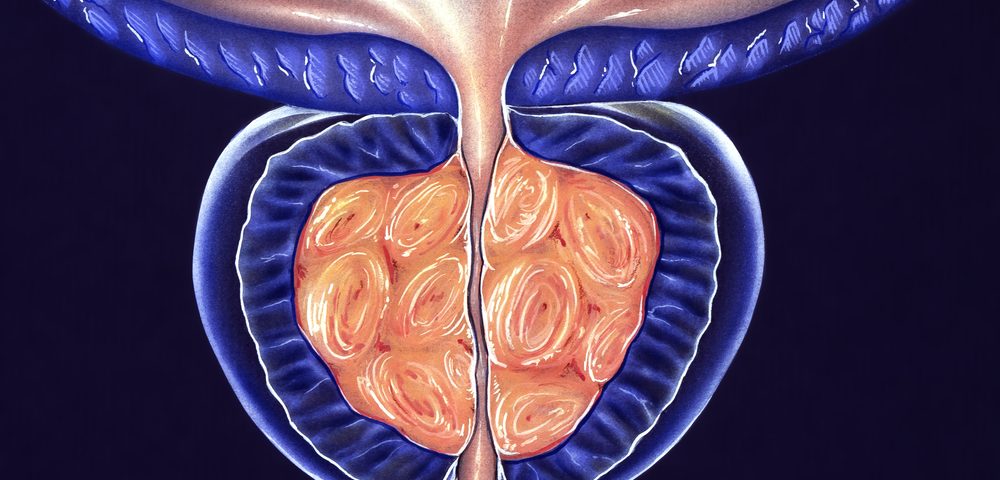Blocking activity of growth hormone-releasing hormone (GHRH) shows beneficial effects in mice with inflammation-induced prostate enlargement. This finding suggests that this strategy may be clinically useful in the treatment of benign prostatic hyperplasia (BPH)
The study, “Antagonists of growth hormone-releasing hormone inhibit proliferation induced by inflammation in prostatic epithelial cells,” was published in the PNAS journal.
Several factors contribute to BPH, and chronic inflammation has a seminal role. However, “the current therapeutic approaches to the treatment of benign prostatic hyperplasia (BPH) do not take into consideration that inflammation is an important factor in the pathogenesis of this disease,” the researchers wrote.
A specific hormone called GHRH has been shown to play a role in several diseases, including prostate cancer. In fact, the team of researchers previously reported that using agents that block GHRH activity (called antagonists) reduced prostatic weights and the secretion of inflammatory cytokines in a mouse model for BPH (the testosterone-induced BPH model). Cytokines are small proteins secreted by cells that have an impact on the interactions and communication between cells.
In this study, using results from their previous data, researchers aimed to investigate the “effects of GHRH antagonist on prostatic enlargement induced by inflammation.” They induced inflammation of the prostate gland in mice (called autoimmune prostatitis).
During the eight-week period of induction, researchers observed a progressive increase in prostatic volume: 92% increase at week 8 when compared with control mice. To understand the role of GHRH in prostate inflammation, researchers treated experimental autoimmune prostatitis (EAP) mice with two GHRH antagonists, the MIA-690 or JV-I-38, during 4 weeks, while control animals were treated with an innocuous agent.
While EAP mice underwent a significant increase in prostate volume (6.37 mm3 to 9.86 mm3), the growth increase was significantly reduced in mice treated with MIA-690: Researchers detected a reduction in the average volume of the ventral prostates in EAP mice by 30%, stopping at 4.48 mm3. Also, MIA-690 treatment reduced the inflammation-induced levels of precursor GHRH protein.
“JV-I-38 also decreased the average volume of the prostate, but this effect was not statistically significant (reduction of 14.3% to 5.46 mm3),” the scientists wrote.
Researchers performed further experiments and observed that proliferation and epithelial-to-mesenchymal transition (EMT), a phenomenon confirmed in human BPH tissue, of human BPH-1 cells, and primary prostate epithelial cells, was inhibited by GHRH antagonists.
During the EMT process, epithelial cells undergo changes, such as loss of cell polarity and cell-cell adhesion, and gain other properties. In this case, the properties of mesenchymal cells, which can migrate, invade other tissues and are also more resistant to programmed cell death (apoptosis).
Overall, “our findings also indicate that GHRH acts as a local growth factor that is induced by the inflammatory environment. Our current and previous findings strongly indicate that GHRH antagonists may be clinically useful in the treatment of chronic prostatitis and BPH,” the authors concluded.

